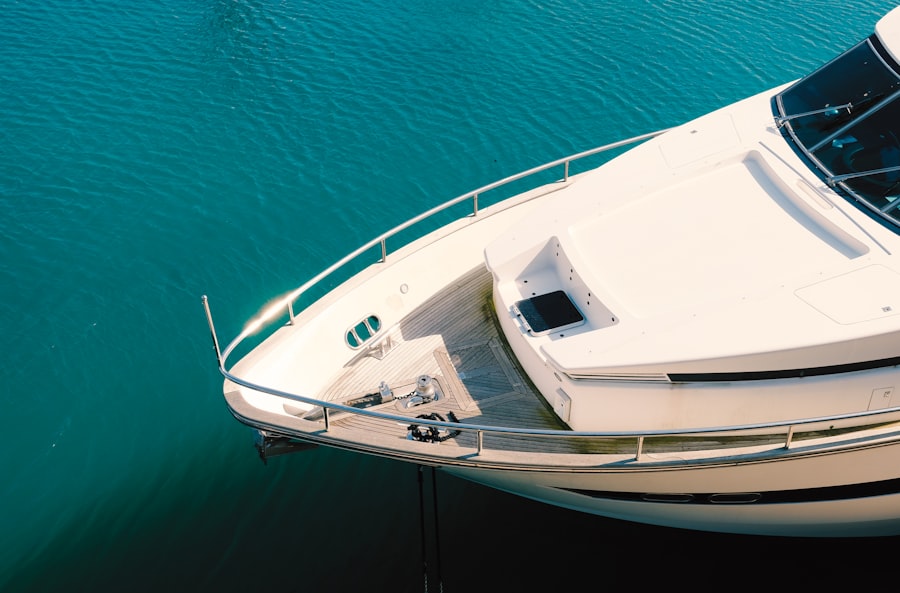When embarking on the journey of yacht ownership, the first step is to gain a clear understanding of your specific needs and desires. This involves a thorough self-assessment of how you intend to use the yacht. Are you looking for a vessel primarily for leisure cruising, or do you envision embarking on long-distance voyages?
Perhaps you are interested in a yacht that can accommodate family gatherings and social events, or one that is equipped for fishing and water sports. Each of these purposes will significantly influence the type of yacht that best suits your lifestyle. Additionally, consider the number of people you plan to have onboard regularly.
A small, intimate yacht may suffice for weekend getaways with a partner, while a larger vessel might be necessary for family trips or entertaining friends. The layout and design of the yacht should also align with your preferences; for instance, do you prefer an open deck for sunbathing or a more enclosed space for dining? By clearly defining your needs, you can streamline your search and ensure that the yacht you choose will enhance your experiences on the water.
Key Takeaways
- Clearly define your yacht requirements before starting the buying process.
- Establish a realistic budget, including purchase and ongoing costs.
- Research different yacht types, brands, and market options thoroughly.
- Work with a reputable yacht broker to navigate the purchase smoothly.
- Conduct thorough inspections and surveys to ensure the yacht’s condition before finalizing the deal.
Setting Your Budget
Once you have a firm grasp on your yacht needs, the next critical step is establishing a budget. Yacht ownership is not merely about the initial purchase price; it encompasses a range of ongoing expenses that can accumulate over time. Begin by determining how much you are willing to spend on the yacht itself.
This figure should reflect not only your financial capacity but also your willingness to invest in a vessel that meets your requirements. In addition to the purchase price, it is essential to account for other costs associated with yacht ownership. These can include insurance premiums, docking fees, maintenance and repair expenses, fuel costs, and crew salaries if applicable.
For instance, larger yachts may require professional crew members, which can significantly increase your annual budget. Furthermore, consider setting aside a contingency fund for unexpected repairs or upgrades. By taking a comprehensive approach to budgeting, you can avoid financial strain and ensure that your yacht remains a source of joy rather than a burden.
Researching Yacht Types and Brands

With your needs and budget clearly defined, the next phase involves researching various yacht types and brands available in the market. The world of yachts is diverse, encompassing everything from sleek sailing yachts to luxurious motor yachts, each with its own set of characteristics and advantages. Sailing yachts are often favored for their elegance and the experience of harnessing wind power, while motor yachts are typically preferred for their speed and ease of navigation.
As you delve into different brands, it is crucial to consider their reputation for quality and reliability. Established manufacturers like Sunseeker, Beneteau, and Azimut have built strong legacies in the industry, known for their craftsmanship and innovative designs. Conversely, newer brands may offer unique features or competitive pricing but may lack the track record of reliability.
Reading reviews, joining online forums, and attending boat shows can provide valuable insights into the performance and satisfaction levels associated with various yacht models.
Finding a Reputable Yacht Broker
| Metric | Description | Recommended Value/Range | Importance |
|---|---|---|---|
| Years of Experience | Number of years the broker has been in the yacht brokerage business | 5+ years | High |
| Number of Yachts Sold Annually | Average number of yachts brokered and sold per year | 10+ | Medium |
| Client Satisfaction Rate | Percentage of positive feedback or reviews from previous clients | 90% or higher | High |
| Licensing and Certification | Broker’s professional credentials and licenses | Valid brokerage license and industry certifications | High |
| Market Knowledge | Broker’s familiarity with yacht types, pricing, and market trends | Extensive and up-to-date | High |
| Communication Responsiveness | Average response time to client inquiries | Within 24 hours | High |
| Network Size | Number of industry contacts including sellers, buyers, and service providers | Large and diverse | Medium |
| Transparency | Clarity in fees, contracts, and transaction processes | Full disclosure and clear terms | High |
Navigating the yacht market can be complex, which is why enlisting the help of a reputable yacht broker is often advisable. A knowledgeable broker can serve as your guide through the intricacies of buying a yacht, leveraging their expertise to help you find options that align with your needs and budget. When searching for a broker, look for someone with extensive experience in the industry and a solid reputation among clients.
A good broker will not only assist in identifying suitable yachts but will also provide insights into market trends and pricing strategies. They can help you understand the nuances of different models and brands, ensuring that you make an informed decision. Additionally, brokers often have access to listings that may not be publicly available, giving you an edge in finding the perfect vessel.
Establishing a strong relationship with your broker can facilitate smoother negotiations and ultimately lead to a more satisfying purchase experience.
Inspecting and Surveying Potential Yachts
Once you have identified potential yachts that pique your interest, it is imperative to conduct thorough inspections and surveys before making any commitments. A comprehensive inspection will help uncover any hidden issues that could affect the yacht’s performance or safety. This process typically involves examining the hull, engine, electrical systems, plumbing, and overall condition of the vessel.
Hiring a qualified marine surveyor is highly recommended during this stage. A surveyor will provide an objective assessment of the yacht’s condition and value, offering insights that may not be immediately apparent to an untrained eye. They will check for structural integrity, signs of wear and tear, and compliance with safety regulations.
Additionally, obtaining a survey report can be beneficial during negotiations, as it provides leverage if any significant issues are discovered.
Understanding Yacht Ownership Costs

Beyond the initial purchase price, understanding the ongoing costs associated with yacht ownership is crucial for prospective buyers. These costs can vary widely based on factors such as the size of the yacht, its age, and how frequently it is used. Insurance is one of the primary expenses; premiums can range significantly depending on the yacht’s value and intended use.
For example, a high-performance racing yacht may incur higher insurance costs compared to a family cruiser. Maintenance is another significant consideration; regular upkeep is essential to ensure the longevity and performance of your yacht. This includes routine tasks such as cleaning, engine servicing, and hull maintenance.
Additionally, if you plan to keep your yacht in a marina or dock, be prepared for monthly docking fees that can vary based on location and amenities offered by the marina. Fuel costs should also be factored into your budget; motor yachts typically consume more fuel than sailing yachts, which can lead to substantial expenses over time.
Negotiating the Purchase Price
Once you have completed inspections and surveys and are satisfied with your chosen yacht’s condition, it’s time to enter into negotiations regarding the purchase price. This stage requires careful consideration and strategy; understanding market values for similar yachts can provide leverage during discussions. Your broker can be instrumental in this process by providing comparable sales data and insights into current market trends.
When negotiating, it’s essential to remain flexible yet firm about your budget constraints. If any issues were identified during the survey process, use these findings as negotiation points to justify a lower offer. For instance, if significant repairs are needed or if there are discrepancies in maintenance records, these factors can warrant a reduction in price.
Effective negotiation often hinges on clear communication; expressing your interest while also highlighting any concerns can foster a collaborative atmosphere conducive to reaching an agreement.
Completing the Purchase and Taking Ownership
After successfully negotiating a purchase price that satisfies both parties, it’s time to finalize the transaction and take ownership of your new yacht. This process typically involves signing a purchase agreement that outlines all terms of sale, including payment details and any contingencies agreed upon during negotiations. It’s advisable to have legal representation during this stage to ensure that all documentation is in order and that your interests are protected.
Once ownership is transferred, there are several important steps to take before setting sail. First, ensure that all necessary registrations and documentation are completed according to local maritime laws. This may include obtaining a title transfer and registering the vessel with relevant authorities.
Additionally, familiarize yourself with safety regulations and equipment requirements specific to your region; this knowledge is crucial for ensuring safe operation on the water. Taking ownership of a yacht marks the beginning of an exciting journey filled with adventure and exploration. Whether you plan to cruise along scenic coastlines or host gatherings with friends at sea, understanding each aspect of yacht ownership will enhance your experience and ensure that you make the most of your investment in this luxurious lifestyle choice.


